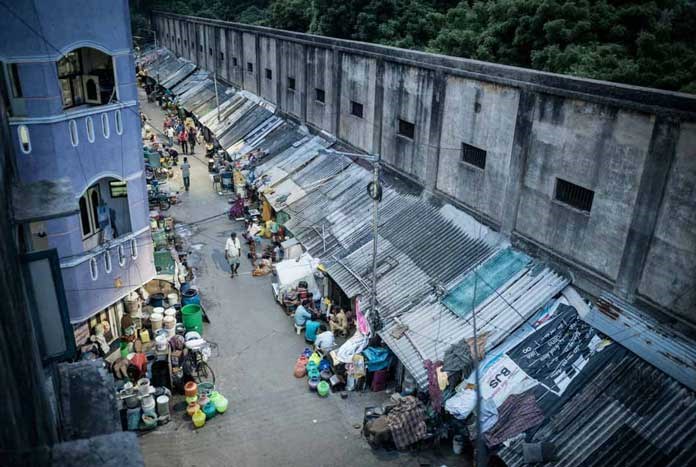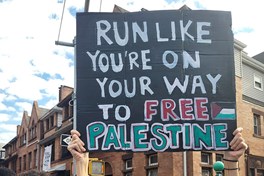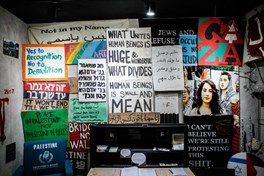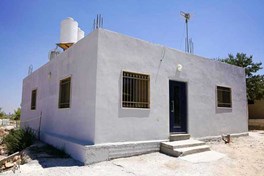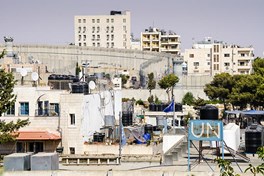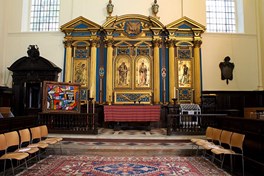“As much of a challenge as we may all be finding the lockdown — which now has more than a fifth of the world’s population living under varying degrees of ‘stay at home’ orders — for those living on the streets, the Coronavirus pandemic is no less terrifying, but the ability to self-isolate or #StayAtHome is not an option available to them. ‘Home’ is on the streets, in abandoned buildings, or temporary structures open to the elements.” Amos’ Director Chris Rose and On Her Terms Lead, Karin Joseph write.
“Stay at home, but how?”
For the homeless this is an impossible order to obey
As much of a challenge as we may all be finding the lockdown — which now has more than a fifth of the world’s population living under varying degrees of ‘stay at home’ orders — for those living on the streets, the Coronavirus pandemic is no less terrifying, but the ability to self-isolate or #StayAtHome is not an option available to them. ‘Home’ is on the streets, in abandoned buildings, or temporary structures open to the elements.
India
The lockdown in India has very much affected our partner Karunalaya’s ability to carry out their normal work with children and families on the streets. It has recently been further restricted; people can now only shop for essentials before 2.30pm.
The girls shelter and boys shelter remain open, but the children cannot leave or go to school nor can they visit family members or begin the reintegration process, so they are spending all their time at the shelter. The staff are educating them there, and they’re playing games and trying to keep as active as possible. Currently there are 22 girls staying at the girls shelter.
Due to corona virus our daily life is affected. There is no job, so no income, all shops are closed. The Public toilet is also closed, we are finding it difficult to go to the toilet and wash.” Monisha
Many Karunalaya staff are not able to get to work, and their ability to visit the pavement-dwelling families is severely restricted so they are mainly keeping in touch with members of the communities on the street via phone and WhatsApp. Karunalaya are particularly concerned about the street communities which do not have any structural shelter, only sheets and plastic.
Families on the street rely on daily wage incomes which have all stopped overnight. Most rely on public toilets which are limited to being open from 10am – 6pm at the best of times, and now are closed all the time. It is unclear how or whether families on the street are going to be able to access food aid promised to poor families by the Indian government, but Karunalaya are continuing to investigate this and advocate for it.
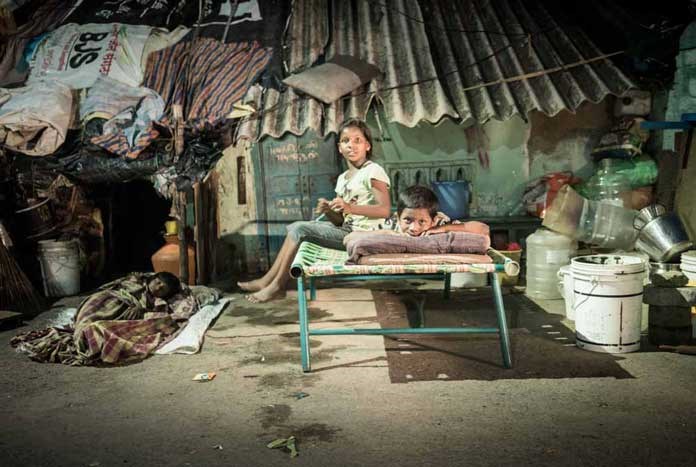
Sister & Brother: A young girl and boy from a street-dwelling community in Chennai, India. Coronavirus has now reached the neighbourhoods of Chennai, and may spread fast given the cramped conditions many live in.
Monisha, a young person who lives on the street in a community called WallTax Road with her family, shared the following update with Karunalaya:
“Due to corona virus our daily life is affected. There is no job, so no income, all shops are closed. The Public toilet is also closed, we are finding it difficult to go to the toilet and wash. As the toilet is closed, people have to relieve themselves very early morning or late in the night when it is dark in a secluded street corner.
Sometime if possible they use the toilet in an office nearby. To wash we make a closure using sarees in the street corner in the early Morning or night. Police come and tell us to go away; where can we go? Corona virus is spreading in India so we are affected very much.”
The girls shelter and boys shelter remain open, but the children cannot leave or go to school of course, so they are spending all their time at the shelter.
Coronavirus has now reached the neighbourhoods of Chennai, and may spread fast given the cramped conditions many live in. Families on the streets are also low on food due to the lack of daily wages. Karunalaya are urgently strategising on how they can work with communities to make sure they can access the food aid they’re entitled to and continue to use toilet facilities.
South Africa
Umthombo are doing their best to navigate the military lockdown which was imposed in South Africa on 26th March, which is having a huge impact on the homeless young people they support in Durban. Local government was ordered by the national government to provide ‘secure shelter’ to all homeless people, and it was not optional — the military and police are involved in forcing them to go to the designated centres from the streets.
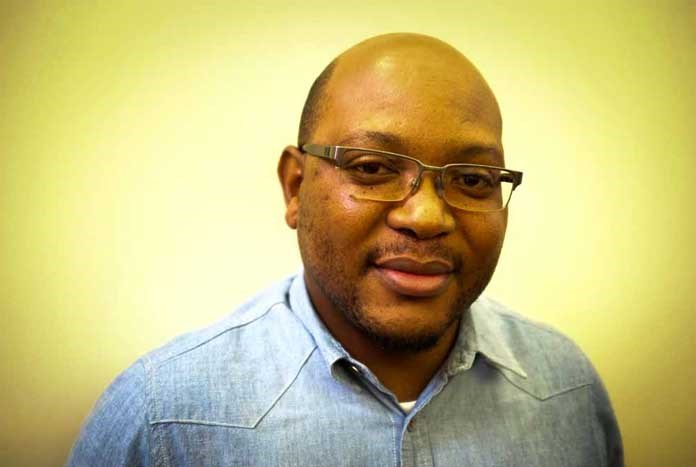
Mpendulo Nyembe, Umthombo’s director, reflected that this yet again “sends a message to the city’s homeless that they are less than human and deserve to be kept underground.”
Although initially it seemed as though there were some promising signs that decent shelter might be provided, by the time the lockdown arrived, children, young people and adults (male and female), from the streets were all being kept in the same location: an underground car park of the city’s football stadium.
Mpendulo Nyembe, Umthombo’s director, reflected that this yet again “sends a message to the city’s homeless that they are less than human and deserve to be kept underground.” After a few days they were eventually separated into male and female spaces — but there’s been no differentiation between children and adults.
Local government was ordered by the national government to provide ‘secure shelter’ to all homeless people, and it was not optional — the military and police are involved in forcing them to go to the designated centres from the streets.
Some young people who Umthombo’s outreach team met back on the streets a few days after the lockdown, shared their concerns and complaints about how they’d been treated in the temporary shelter. They were reporting appalling conditions, some have been beaten. They are let out during the day if they want to leave. The authorities don’t have the ability to force them to come back each night. But more military round ups will come before long.
“People who are there aren’t taking care of us. They don’t try to communicate with us. They are giving us minimal food. They’ve even chased away people that we know can give us food (a regular soup kitchen that is well known to people living on the streets). Umthombo workers should go there and just see what happens to you when you try to get in and help us.”
“We only get one cup of porridge in the morning. Then we get something very small but late in the afternoon. Those of us who are sick aren’t receiving any medical attention or getting any help.”
One young woman also complains about the food. She said too that young women being kept in the same space as men is a big problem, claiming one young woman was sexually abused by 4 men in there.
They were reporting appalling conditions, some have been beaten. They are let out during the day if they want to leave. The authorities don’t have the ability to force them to come back each night. But more military round ups will come before long.
“We’re being abused and assaulted because we are homeless. Things are happening that are not done to people who aren’t homeless. I’m concerned about our health — we’re all being put together. What if we contract diseases we don’t have, like TB? We’ve been asked stupid questions like ‘have you travelled overseas?!”
A number of the young people who Umthombo work with were not rounded up by the authorities and taken to the central shelter. This is because they shelter in abandoned buildings at the outskirts of the city — up to 60 in each building. They normally head out and can obtain food and water throughout the day. But now in the lockdown they aren’t allowed to leave the buildings; whenever they go out, the police turn them back — as such, they have no food and water.
Umthombo recently managed to secure the necessary provincial authorisation, marking them out as an essential service, moving freely in the city despite the military lockdown.
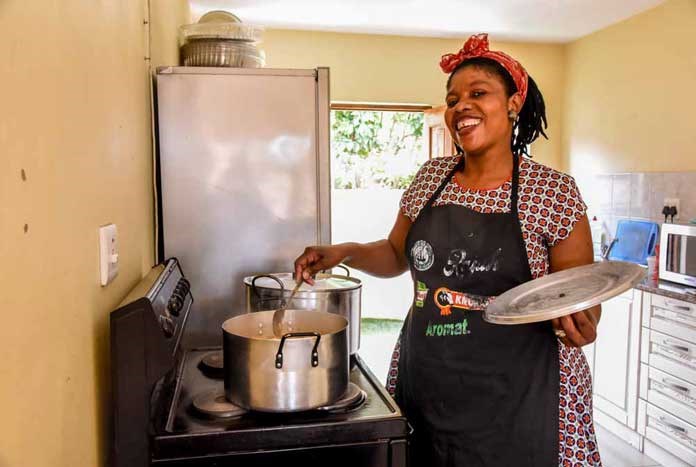
Umthombo staff are doing their best to continue to offer practical help to the young people that they work with.
So they are now doing their best to reach these young people, some of whom are girls who have babies, delivering food and water, essentials for babies such as nappies, and blankets because the weather has recently turned.
We have also been in regular contact with our partners in Tanzania and Burundi, where case numbers are currently far lower but measures are being put in place to try to prevent a devastating escalation. We’ll be sharing more news and updates from these partners in the coming weeks.
— — — — — — —
Please sign up to receive Amos Trust’s E-news which will keep you updated about our work in Palestine, our On Her Terms campaign for girls and young women on the streets and our Climate Justice work in Nicaragua.

